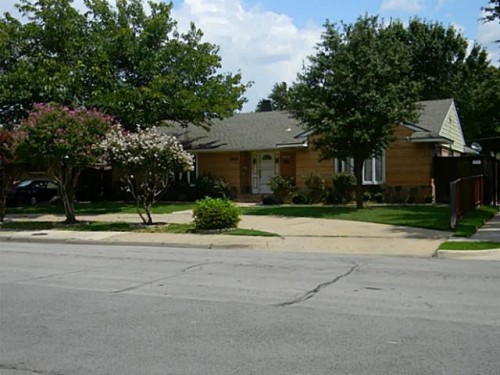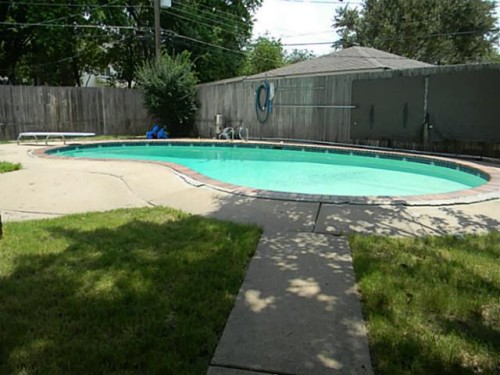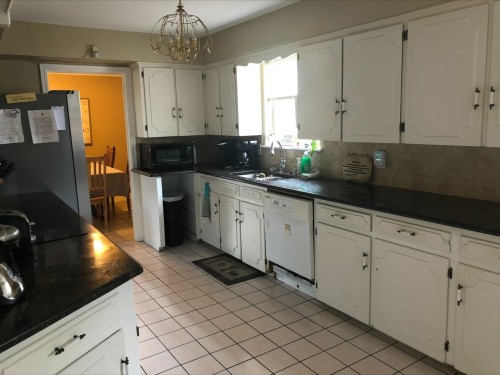





Simply Grace House Dallas
Treatment Focus
This center primarily treats substance use disorders, helping you stabilize, create relapse-prevention plans, and connect to compassionate support.
Primary Level of Care
Offering intensive care with 24/7 monitoring, residential treatment is typically 30 days and can cover multiple levels of care. Length can range from 14 to 90 days typically.
Claimed
Recovery.com has connected directly with this treatment provider to validate the information in their profile.
Treatment Focus
This center primarily treats substance use disorders, helping you stabilize, create relapse-prevention plans, and connect to compassionate support.
Primary Level of Care
Offering intensive care with 24/7 monitoring, residential treatment is typically 30 days and can cover multiple levels of care. Length can range from 14 to 90 days typically.
Provider's Policy
We are in-network with BCBS, Magellan, Aetna, Cigna, Superior Health, Medicare, Ambetter, United Healthcare and other insurance providers and plans.
Simply Grace House Dallas
Simply Grace House Dallas
About Simply Grace House Dallas
Simply Grace is a non-profit organization based in Dallas, Texas, dedicated to providing safe, structured environments for women recovering from substance use disorders. Their mission focuses on assisting women in rebuilding their lives and achieving long-term recovery through supportive sober living homes and comprehensive programs.
Tailored Care for Your Unique Needs
Their services include multiple women's sober living homes, one of which is a "mommy and me" house designed to support women with children aged 2-12, helping them navigate parenting while in recovery. Simply Grace offers an Intensive Outpatient Program (IOP) that spans nine weeks, meeting three days a week, and includes weekly individual sessions. The program incorporates various therapeutic approaches, such as 12-step facilitation, cognitive behavioral therapy, and dialectical behavior therapy, aiming to improve mental, physical, spiritual, and emotional health.
A Community Committed to Recovery
Simply Grace serves adult women seeking recovery from substance abuse, including those with children, by providing a supportive community and resources tailored to their needs. Their programs require residents to engage in productive activities like work, volunteering, or education for a minimum of 30 hours per week. Additional support includes weekly life skills groups facilitated by licensed professionals, daily meditation, and access to individual counseling. The organization also operates a thrift store that offers job skills training and volunteer opportunities, further aiding in the residents' reintegration into society.
Center Overview
Treatment Focus
This center primarily treats substance use disorders, helping you stabilize, create relapse-prevention plans, and connect to compassionate support.
Insurance Accepted
Pricing and Program Length
Estimated Center Costs
The cost listed here (Call for Rates), is an estimate of program cost. Center price can vary based on program and length of stay. Contact the center for more information. Recovery.com strives for price transparency so you can make an informed decision.
Levels of Care





Your Care Options
Specializations
Drug Addiction
Drug addiction is the excessive and repetitive use of substances, despite harmful consequences to a person's life, health, and relationships.
Twelve Step
Incorporating spirituality, community, and responsibility, 12-Step philosophies prioritize the guidance of a Higher Power and a continuation of 12-Step practices.
Who We Treat
Women only
Women attend treatment in a gender-specific facility, with treatment delivered in a safe, nourishing, and supportive environment for greater comfort.
Approaches
Therapeutic Community
Therapeutic communities allow patients to contribute to the success and progress of their community, through healthy behaviors or even basic chores.
Twelve Step
Incorporating spirituality, community, and responsibility, 12-Step philosophies prioritize the guidance of a Higher Power and a continuation of 12-Step practices.
Gender-Specific
Separate treatment for men or women can create strong peer connections and remove barriers related to trauma, shame, and gender-specific nuances.
Therapies
1-on-1 Counseling
Patient and therapist meet 1-on-1 to work through difficult emotions and behavioral challenges in a personal, private setting.
Meditation & Mindfulness
A practiced state of mind that brings patients to the present. It allows them to become fully aware of themselves, their feelings, and the present moment.
Life Skills
Teaching life skills like cooking, cleaning, clear communication, and even basic math provides a strong foundation for continued recovery.
Relapse Prevention Counseling
Relapse prevention counselors teach patients to recognize the signs of relapse and reduce their risk.
Twelve Step Facilitation
12-Step groups offer a framework for addiction recovery. Members commit to a higher power, recognize their issues, and support each other in the healing process.
Conditions We Treat
Trauma
Some traumatic events are so disturbing that they cause long-term mental health problems. Those ongoing issues can also be referred to as "trauma."
Substances We Treat
Alcohol
Using alcohol as a coping mechanism, or drinking excessively throughout the week, signals an alcohol use disorder.
Drug Addiction
Drug addiction is the excessive and repetitive use of substances, despite harmful consequences to a person's life, health, and relationships.
Languages
Care Designed for Your Needs
Personal Amenities
Amenities
Activities
What people are saying
Treatment
0.5
Accommodations
0.5
Food & Nutrition
0.5
Value
0.5
Cassi Thompson
Treatment in 2025 • (5 days) • Reviewed 05/30/25
Former Client
•Brownwood, TX






